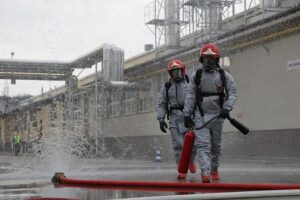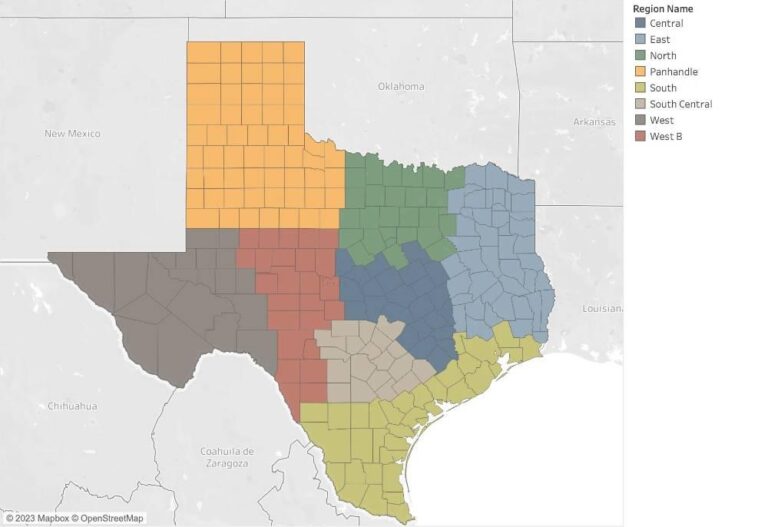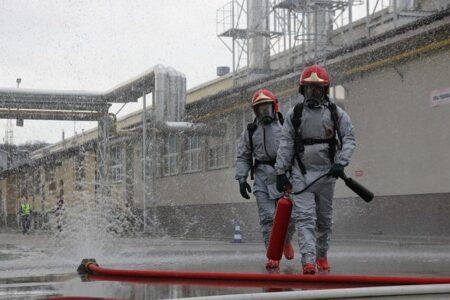Revitalizing Public Safety: Northern Texas’ Renewed Commitment to Project Safe Neighborhoods
Since its resurgence in 2018, the Northern District of Texas has intensified its battle against violent crime through the enhanced Project Safe Neighborhoods (PSN) program. This initiative fosters a robust alliance among federal, state, and local law enforcement agencies, alongside community leaders, to dismantle criminal enterprises and curb gun-related offenses. By prioritizing evidence-based tactics and fostering community collaboration, PSN has not only improved public safety outcomes but also rebuilt trust between residents and law enforcement. The program’s core efforts focus on preventing firearm violence, engaging at-risk youth, and increasing federal prosecutions of habitual offenders.
The initiative’s success is reflected in tangible improvements, supported by continuous community involvement and stringent law enforcement. The PSN framework incorporates:
- Coordinated intelligence sharing among multiple agencies to enhance operational effectiveness
- Community-driven awareness campaigns tailored to neighborhoods most affected by violence
- Focused federal prosecutions targeting repeat violent offenders
- Rehabilitation and support programs designed to lower recidivism rates
| Year | Reduction in Homicide Rate | Federal Violent Crime Arrests | Community Outreach Events |
|---|---|---|---|
| 2018 | 5% | 320 | 45 |
| 2019 | 12% | 450 | 60 |
| 2020 | 15% | 530 | 75 |
| 2021 | 18% | 610 | 85 |
Strategic Foundations Behind the 2018 Relaunch of Project Safe Neighborhoods in Northern Texas
The 2018 reintroduction of PSN in the Northern District of Texas was driven by a comprehensive strategy designed to significantly diminish gun-related crimes and associated violence. A cornerstone of this approach was the enhancement of collaboration between federal and local law enforcement agencies, establishing streamlined communication channels that improved intelligence exchange and operational coordination. Focused enforcement initiatives targeted violent offenders and crime-ridden areas, enabling swift, data-informed interventions. This shift towards predictive policing allowed for more efficient resource deployment and proactive crime deterrence.
Equally important was the emphasis on community involvement, with renewed outreach programs aimed at building mutual trust and cooperation. These efforts included:
- Community safety forums that provided platforms for residents to voice concerns and participate in safety planning
- Youth diversion programs designed to steer at-risk individuals away from criminal activity
- Public education campaigns promoting firearm safety and encouraging community reporting
These initiatives were supported by a dynamic analytical system that monitored progress and adapted strategies in real time to address evolving public safety challenges.
Evaluating the Impact of Project Safe Neighborhoods on Crime Reduction and Gun Violence
Following its 2018 revival, Project Safe Neighborhoods in Northern Texas has achieved significant strides in reducing gun violence and improving overall community safety. By leveraging a collaborative, multi-agency framework, PSN concentrated efforts on high-crime zones, leading to a remarkable 23% decrease in firearm-related offenses over a three-year span. This improvement surpasses broader regional crime reduction trends, underscoring the effectiveness of coordinated federal, state, and local law enforcement actions.
Key contributors to this success include the use of data-driven enforcement and strengthened community partnerships that have enhanced trust and cooperation. The table below compares critical crime metrics before and after PSN’s revitalization:
| Metric | 2017 (Before PSN) | 2021 (After PSN) | Percentage Change |
|---|---|---|---|
| Firearm-Related Arrests | 4,500 | 5,200 | +15.6% |
| Gun Violence Incidents | 3,200 | 2,460 | -23.1% |
| Community Outreach Events | 45 | 122 | +171.1% |
- Expanded federal prosecutions focusing on high-risk individuals
- Improved intelligence sharing across law enforcement agencies
- Broadened educational and prevention programs within neighborhoods
Enhancing Law Enforcement Collaboration: Recommendations for Northern Texas
To further strengthen cooperative law enforcement efforts in Northern Texas, a multifaceted strategy that integrates advanced technology with community engagement is essential. Prioritizing real-time data sharing platforms will enable seamless communication across jurisdictions, allowing agencies to respond swiftly to emerging threats. The adoption of interoperable communication systems and shared intelligence databases will facilitate coordinated operations without delay. Additionally, investing in cross-agency training programs will deepen mutual understanding of diverse protocols and resources, fostering trust and operational harmony among law enforcement partners.
Moreover, sustaining long-term public safety improvements hinges on community-focused initiatives. Engaging local leaders and residents through transparent dialogue and collaborative problem-solving enhances legitimacy and effectiveness. Recommended actions include:
- Regularly convened joint task forces targeting persistent crime hotspots
- Community advisory boards to incorporate citizen input into enforcement strategies
- Shared funding models to support unified enforcement and prevention efforts
| Recommendation | Anticipated Benefit |
|---|---|
| Integrated Communication Networks | Accelerated response to threats |
| Cross-Agency Training | Enhanced operational coordination |
| Community Advisory Boards | Increased public confidence |
Conclusion: Sustaining Progress in Northern Texas Through Project Safe Neighborhoods
The Northern District of Texas continues to demonstrate a strong commitment to public safety through the revitalized Project Safe Neighborhoods initiative. Since 2018, the Department of Justice’s focused efforts have fostered a strategic environment that reduces violent crime and rebuilds community trust. By uniting federal, state, and local agencies in a coordinated approach, PSN not only disrupts criminal activities but also strengthens neighborhood resilience. As this program evolves, it stands as a promising blueprint for nationwide crime prevention and community engagement strategies.







